The ASEAN Summit, chaired by Malaysian Prime Minister Anwar Ibrahim, the ASEAN 2025 Chair, was attended by the ASEAN member states’ leaders and Timor-Leste Prime Minister Xanana Gusmao and the ASEAN Secretary-General.
The leaders expressed their deep condolences and sorrow over the passing of former President Tran Duc Luong and appreciated his significant contributions to Vietnam’s renewal, development, and regional and international integration.
They endorsed the timely theme of “Inclusivity and Sustainability,” reflecting ASEAN’s urgent need to promote balanced, resilient, united, and effective responses to shared challenges such as climate change, energy security, transnational crime, and natural disasters. ASEAN is a bright spot in global growth, with a 4.8% increase in 2024 and a projected 4.7% in 2025. Intra-ASEAN cooperation and engagement with external partners continue to expand, enhancing the group’s central role and stature.
To sustain these achievements amid global uncertainties, ASEAN should harness its internal potential, support a rules-based multilateral trading system, effectively utilize existing trade agreements, expand connectivity, and proactively shape the region’s future through frameworks and initiatives like the ASEAN Power Grid and the ASEAN Framework Agreement on Digital Economy.
In this spirit, ASEAN leaders unanimously adopted the document “ASEAN 2045: Our Future Together,” encompassing the ASEAN Community Vision 2045 and strategies for political-security, economic, socio-cultural, and connectivity pillars. This document establishes a strategic foundation for ASEAN’s cooperation and integration in the coming decades.
They agreed that implementing the 2045 strategies requires not only political declarations but also concrete action plans, adequate resources, effective implementation and monitoring mechanisms, and societal engagement. The ASEAN Community Vision 2045 and the strategies should also be mainstreamed into national development plans to ensure synchronization and consistency.
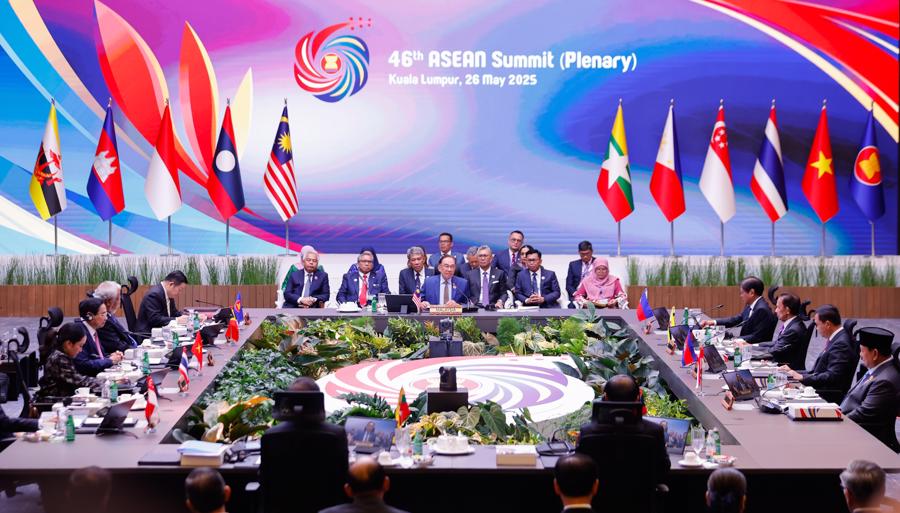
The leaders agreed to admit Timor-Leste as ASEAN’s 11th member at the 47th ASEAN Summit in October 2025 and tasked ministers and senior officials with negotiating Timor-Leste’s accession document.
Prime Minister Pham Minh Chinh expressed gratitude for the leaders’ sentiments and condolences on the passing of former President Tran Duc Luong.
Endorsing this year’s theme of “Inclusivity and Sustainability,” he expressed confidence in Malaysia’s ability to steer ASEAN through difficulties and challenges and appreciated ASEAN’s timely and coordinated responses. The world has witnessed new and unpredictable changes, increasing political polarization, economic fragmentation, institutional divisions, and development disparities.
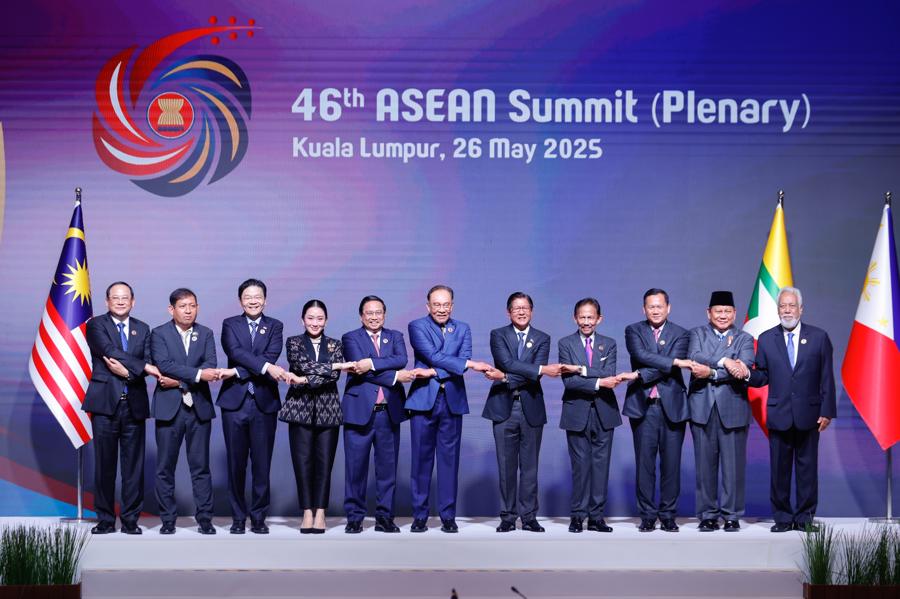
This challenging context demands that ASEAN strengthen its “5 more” strengths: greater unity to form collective strength, greater self-reliance to control our destiny, greater proactiveness to shape the game, greater inclusivity to ensure ASEAN remains a common home for all members, and greater sustainability to secure our future generations’ well-being.
The Prime Minister highly agreed with the adoption of the “ASEAN 2045: Our Future Together” package. Moving forward, he proposed three cooperation priorities for ASEAN.
First, ASEAN should reshape its development thinking, placing inclusivity as the foundation, innovation as the driver, and sustainability as the destination. He suggested that specialized agencies study and propose making “sustainability” one of the criteria for evaluating the implementation of the 2045 cooperation strategies, based on three pillars: green economy, inclusive society, and smart governance.
The Prime Minister also recommended mobilizing resources from both the public and private sectors to promote digital transformation, science and technology, and innovation, as well as developing region-wide initiatives to inspire ASEAN’s partners to join.
Second, ASEAN needs to enhance its connectivity and expand linkages beyond the region, diversifying products, markets, and supply chains. He welcomed the replication of the ASEAN-Gulf Cooperation Council (GCC) Summit model and the ASEAN-GCC-China Economic Summit with other potential partners such as the Common Market of the South and the Pacific Alliance.
The Prime Minister also suggested that ASEAN collectively advocate for free, fair, and inclusive trade principles and uphold multilateralism. He expressed confidence that Timor-Leste’s early admission to ASEAN would significantly contribute to enhancing the group’s self-reliance, inclusivity, and sustainability.
Third, ASEAN should maintain its central role and enhance regional self-reliance. The Prime Minister emphasized that ASEAN’s success relies on ensuring strategic autonomy and independence in implementing regional policies. ASEAN must reaffirm its centrality not just in name but through actions, maintaining strategic autonomy, fostering intra-bloc consensus, and enhancing proactive adaptability to external changes.
Given the increase in transnational crimes, he announced Vietnam’s proposal to develop an ASEAN Declaration on Enhancing Cooperation in Fugitive Apprehension, seeking the support of other member states.
The Prime Minister believed that with shared trust and a common vision, ASEAN would overcome all challenges and emerge stronger. Vietnam is committed to being a responsible, proactive, and active member, ready to work with ASEAN to build a Community that is “more united, resilient, proactive, inclusive, and sustainable” for today and future generations.
Which ASEAN Country Fares Best Against US Tariffs?
The negotiations on tariffs with the US are ongoing, and Asian countries, particularly the ASEAN region, are in a hurry to conclude them. As a highly trade-dependent region, ASEAN has much at stake when it comes to US tariff policies. However, resilience lies not in the trade deficit figures but in the intrinsic structure and strategic response capabilities of the region.
Unlocking Trade Potential: Vietnam and Malaysia Aim for $20 Billion Trade Target, Embracing Green Initiatives and Halal Industry
On May 25, during a meeting in Kuala Lumpur, Prime Minister Pham Minh Chinh and his Malaysian counterpart agreed to boost bilateral trade to 20 billion USD by 2030. They also affirmed their commitment to enhancing collaboration in green economy, Halal industry, and defense and security.
“Malaysian Businesses: Strengthen Your Bond with Vietnam, Says Prime Minister”
On the morning of May 25, during his working visit to Malaysia, Prime Minister Pham Minh Chinh attended the “Meet Vietnam – Malaysia Businesses” program, organized by the Ministry of Finance of Vietnam in collaboration with the Embassy of Vietnam in Malaysia and the Malaysia Chamber of Commerce and Industry.
“Prime Minister Calls on Businesses to Embrace Their Role as Connectors Within ASEAN and Between Vietnam and Malaysia.”
On the morning of May 25, as part of his working visit to Malaysia, Prime Minister Pham Minh Chinh attended a program titled “Meet Vietnam-Malaysia Businesses.” The event was organized by the Ministry of Finance of Vietnam, in collaboration with the Embassy of Vietnam in Malaysia and the Malaysian Chamber of Commerce and Industry.
“Premier Pham Minh Chinh Named Outstanding ASEAN Leader 2025”
On May 25, in Kuala Lumpur, as part of his official visit to Malaysia and attendance at the 46th ASEAN Summit, Prime Minister Pham Minh Chinh participated in the ASEAN Leadership and Partnership Forum. At this event, the Asia-Pacific Strategic Research Institute (KSI) honored him as the Outstanding ASEAN Leader of the Year 2025 – a recognition of Vietnam’s significant contributions to the region’s development process.

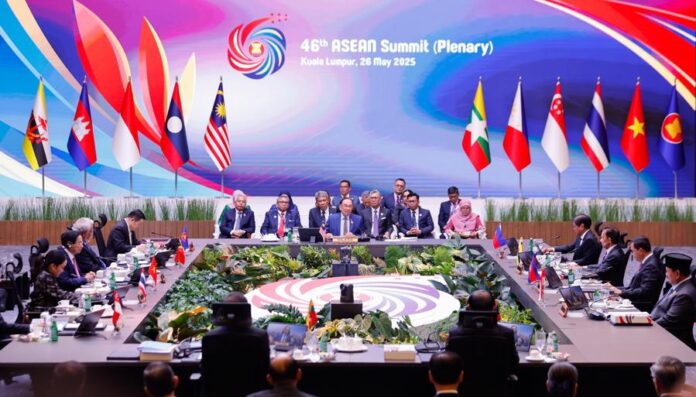
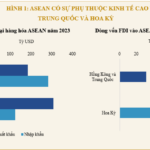
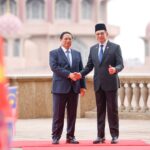
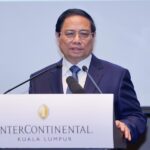
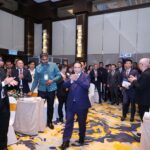
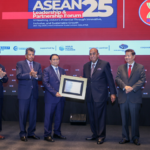

![[Photo Essay]: Experts, Managers, and Businesses Unite to Forge a Path Towards Sustainable Green Industry](https://xe.today/wp-content/uploads/2025/07/z678592918-218x150.jpg)












